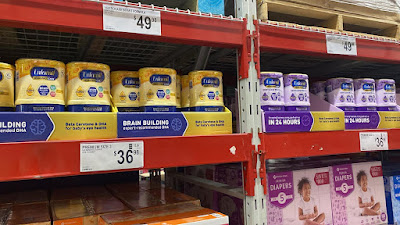Reckitt Benckiser Group plc (Reckitt) announced today that sales of its Mead Johnson baby formula powder are expected to experience a temporary downturn following significant damage to a key third-party warehouse in Mount Vernon, Indiana. The warehouse, which plays a critical role in Reckitt's Mead Johnson Nutrition business, was struck by a tornado on July 9, 2024.
In a statement, Reckitt confirmed that all employees are safe and extended its deepest sympathy to the community members affected by the tornado. The Mount Vernon warehouse, housing a mix of raw materials and finished products, remains non-operational after partial access was first granted on July 13. To mitigate supply disruptions, Reckitt has redirected all inbound deliveries to its other warehousing facilities across the United States.
Reckitt has a robust track record of overcoming supply chain challenges, particularly in the face of emergencies. During the 2022 U.S. baby formula shortage, the company successfully transported 65 tons of baby formula from Singapore to Chicago and expedited product approvals with the FDA for supplies from its facility in Mexico. In this latest incident, Reckitt is once again relying on its global network to address the crisis.
The company also noted that it holds comprehensive property damage and business interruption insurance, which it expects will largely offset the impact on its earnings. A further update on the situation will be provided during Reckitt’s half-year results announcement on July 24.
This marks the third significant setback for Reckitt this year. In February, the company faced a steep drop in share value after an investigation revealed under-reported liabilities in the Middle East. In March, Reckitt's stock took another hit following an Illinois jury's $60 million verdict against its Mead Johnson unit, related to the death of a premature baby allegedly fed with Enfamil Premature 24 baby formula.

